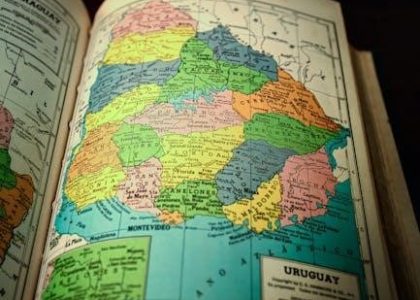Robert Fagles’ Translation of The Odyssey

Robert Fagles’ rendition of Homer’s Odyssey is widely celebrated‚ with Jasper Griffin hailing it as a “distinguished achievement.” Fagles’ translation captures the epic’s spirit‚ making it accessible and engaging for contemporary readers. His work has become a standard for many.
Availability of Fagles’ Odyssey in PDF Format
The demand for Robert Fagles’ translation of The Odyssey in PDF format is substantial‚ reflecting its popularity and academic significance. Numerous online platforms offer downloadable PDF versions‚ catering to students‚ scholars‚ and general readers alike. These digital formats provide convenient access‚ allowing users to read the epic on various devices. While some sources offer these PDFs for free‚ others may require a purchase or subscription. The availability of Fagles’ Odyssey in PDF format ensures that this classic work is readily accessible in the modern age. It also facilitates easier searching and referencing‚ which is beneficial for research and analysis. The digital versions often retain the original formatting of the printed text‚ including the book’s page numbers. However‚ it is important to be mindful of the source when downloading PDF versions to ensure the file is legitimate and of high quality. The accessibility of this translation in PDF format contributes to the enduring legacy of Homer’s Odyssey and Fagles’ contribution to its popularity. The digital distribution of this version helps it reach a global audience‚ ensuring the story is constantly available to new readers.
Free PDF Downloads of Robert Fagles’ The Odyssey

The search for free PDF downloads of Robert Fagles’ translation of The Odyssey is a common pursuit among those eager to engage with Homer’s epic without cost. Several websites and online libraries claim to offer free access to this translation in PDF format. However‚ it is crucial to exercise caution when downloading from such sources. The legitimacy and quality of these free PDFs can vary significantly. Some may be incomplete or contain errors‚ while others may be in poor image quality. It is wise to use reputable academic and library resources when seeking these free versions. These sources often provide legitimate copies of the translation with proper formatting. The appeal of free downloads is understandable‚ making it important to be critical of the source material. Users should ensure that they are not violating any copyright laws when accessing these free copies. The availability of free PDFs often contributes to a wider readership of Fagles’ translation‚ but the user must remain vigilant about the file’s origins and authenticity. The accessibility of free online versions often results in the translation reaching new readers‚ contributing to its ongoing popularity and influence.
Robert Fagles’ Translation as a Distinguished Achievement
Robert Fagles’ translation of The Odyssey is widely lauded as a distinguished achievement‚ setting a high standard for modern renditions of Homer’s epic. His work is celebrated for its ability to capture the poetic quality of the original Greek while remaining accessible to contemporary readers. Fagles’ translation is praised for its vivid language and its ability to bring the characters and the epic’s dramatic events to life. It avoids a literal‚ word-for-word approach‚ opting instead for a more fluid and expressive style that resonates with modern audiences. Critics have noted that Fagles’ rendering strikes a balance between scholarly accuracy and artistic interpretation. This approach has made his translation a favorite for both academic study and general reading. The use of dynamic language and nuanced vocabulary contributes to the overall impact of the translation; It allows readers to experience the power and emotion of Homer’s storytelling. Fagles’ ability to convey the themes and subtleties of the epic is why his work is considered a benchmark in the field of classical translations. The recognition of his achievement solidifies his place as a leading translator of ancient Greek literature.
The Odyssey by Homer Translated by Robert Fagles
Robert Fagles’ translation of The Odyssey by Homer has become a cornerstone for readers seeking a modern and engaging experience of the ancient epic. His approach to translating the text prioritizes readability and the conveyance of the original’s poetic essence. Unlike more literal translations‚ Fagles’ version aims to capture the spirit and emotional impact of Homer’s narrative‚ presenting it in language that resonates with contemporary audiences. This translation is not merely a rendering of words; it’s a reimagining of the story‚ ensuring that the characters‚ their motivations‚ and the profound themes of the epic are accessible and compelling. Fagles’ meticulous work balances scholarly accuracy with an artistic sensibility‚ allowing for a text that is both faithful to the original and a pleasure to read. His translation has been widely adopted in educational settings and by general readers‚ solidifying its position as a definitive modern version. It makes the timeless story of Odysseus’s journey home come alive with vivid imagery and dynamic storytelling‚ ensuring its continued relevance and appeal. The translation has greatly contributed to the enduring popularity of The Odyssey.
Penguin Classics Edition of Fagles’ Odyssey
The Penguin Classics edition of Robert Fagles’ translation of The Odyssey stands as a highly regarded version of the epic. This edition‚ published by Penguin Books‚ often comes with additional materials that enhance the reader’s understanding and appreciation of the text. The Penguin Classics edition of Fagles’ Odyssey is known for its accessibility and high production value‚ making it a popular choice for both academic and personal use. The text is typically well-formatted‚ making it easy to navigate and read‚ and it often includes features like maps‚ glossaries‚ and other helpful tools for readers encountering the epic for the first time. The physical quality of the Penguin Classics edition is also a factor in its popularity‚ with a durable binding and a clear typeface. This edition strives to deliver a complete and enriching reading experience‚ presenting Fagles’ translation in a format that is both scholarly and reader-friendly. It’s a version that many rely on for its completeness and the additional resources it provides‚ which helps readers to fully engage with Homer’s work; It is a testament to the enduring legacy of both Homer and Fagles.
Bernard Knox’s contribution to the Penguin Classics edition of Robert Fagles’ Odyssey is significant‚ adding substantial value to the reader’s experience through his insightful introduction and comprehensive notes. Knox’s introduction provides a vital overview of the historical‚ cultural‚ and literary contexts of Homer’s epic‚ helping readers grasp the nuances of the narrative. He explores the themes‚ characters‚ and structure of the Odyssey‚ offering critical perspectives that enrich one’s understanding. The notes that Knox provides throughout the text are invaluable‚ explaining obscure references‚ clarifying ambiguities‚ and shedding light on the deeper meanings embedded in the poem. These notes guide the reader through the complexities of the text‚ making it more approachable and allowing for a more profound engagement with Homer’s work. Knox’s scholarly expertise is evident in his attention to detail and his ability to make the ancient world come alive. His contributions make the Penguin Classics edition a particularly useful resource for students and enthusiasts alike‚ providing context and analysis that significantly enhance the impact of Fagles’ translation. The introduction and notes are an integral part of the edition‚ making it a more complete and scholarly offering.
Robert Fagles’ Translation of The Odyssey⁚ Book One
Robert Fagles’ translation of Book One of the Odyssey masterfully sets the stage for the epic journey‚ capturing the essence of Homer’s opening with remarkable clarity and force; The book begins with the iconic invocation to the Muse‚ immediately establishing the poem’s grand scope and invoking the divine assistance needed to tell the tale. Fagles’ rendering of this invocation is both poetic and powerful‚ drawing the reader into the world of gods and heroes. The introduction of key characters‚ such as Athena and Telemachus‚ is handled with subtlety and depth‚ revealing their motivations and conflicts. The narrative skillfully portrays Telemachus’s growing frustration with the suitors who are consuming his family’s wealth‚ highlighting the injustice and disorder that plague Ithaca in Odysseus’s absence. Athena’s visit‚ disguised as Mentes‚ provides crucial impetus to the plot‚ inspiring Telemachus to seek news of his father. Fagles’ translation effectively captures the dialogue‚ making it dynamic and engaging‚ and maintaining the original tension and drama. The book concludes with Telemachus’s decision to embark on a journey‚ thus setting in motion the intertwined narratives of father and son. Fagles’ nuanced approach to the text ensures that the opening book resonates with contemporary readers.
The Odyssey’s Themes in Fagles’ Translation

Robert Fagles’ translation of the Odyssey skillfully highlights the epic’s core themes‚ making them resonate with modern audiences. One prominent theme is the concept of nostos‚ or homecoming‚ which permeates the entire narrative as Odysseus strives to return to Ithaca after years of wandering. Fagles’ language underscores the deep longing and resilience that characterize Odysseus’s journey‚ emphasizing the emotional and physical toll of exile. Another key theme is the importance of hospitality‚ or xenia‚ which is constantly tested throughout the poem. The treatment of guests‚ whether divine or mortal‚ reflects the moral character of the host‚ and Fagles’ rendering makes these interactions both vivid and meaningful. The struggle between gods and mortals is also a recurring theme‚ with divine intervention shaping the course of human events‚ and Fagles’ translation captures the complex interplay between fate and free will. Furthermore‚ the theme of disguise and recognition is central to the epic‚ as characters assume various identities‚ testing loyalty and revealing hidden truths. Fagles’s choice of words emphasizes the tension and suspense involved in these encounters. Lastly‚ the theme of cunning and intelligence is embodied by Odysseus himself‚ and Fagles’ translation showcases Odysseus’s brilliance and adaptability in overcoming numerous challenges. Through his nuanced rendering‚ Fagles ensures these timeless themes remain powerful and engaging.
Robert Fagles’ Impact on Homer’s Odyssey
Robert Fagles’ translation of Homer’s Odyssey has had a profound and lasting impact on how the epic is perceived and understood by contemporary readers. Fagles’ work revitalized the ancient text‚ making it accessible and engaging for a modern audience‚ while also preserving the essence of the original Greek. His translation is known for its dynamic and fluid style‚ which captures the epic’s narrative drive and emotional depth. Unlike some earlier‚ more literal translations‚ Fagles prioritized readability and dramatic impact‚ ensuring that the story resonates with readers as a living‚ breathing tale. This approach has broadened the appeal of the Odyssey‚ introducing it to new generations of readers and solidifying its place in popular culture. Fagles’ translation has also significantly influenced the teaching and study of Homer‚ becoming the standard text in many academic settings. His choices in language and phrasing have reshaped critical interpretations of the poem‚ prompting new avenues of scholarly discourse. Moreover‚ Fagles’ accessible style has made it possible for non-specialist readers to appreciate the nuances and complexities of the Odyssey. His work bridges the gap between the ancient world and the modern‚ ensuring that Homer’s epic continues to captivate and inspire. Ultimately‚ Fagles’ contribution is not merely a translation but a reimagining of the Odyssey for the modern age.






